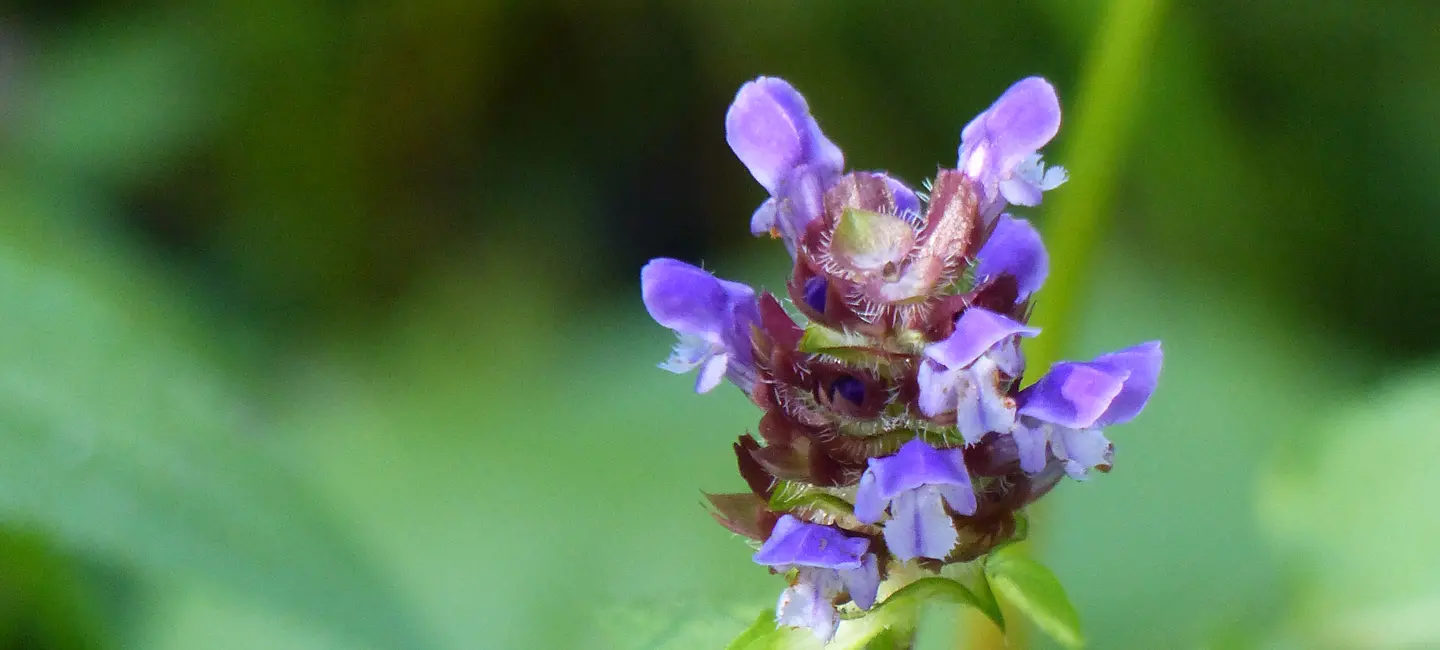
Self-heal is an herb. The parts that grow above the ground are used to make medicine.
Self-heal is used for inflammatory bowel disease such as Crohn disease and ulcerative colitis, rheumatoid arthritis, problems in the stomach and intestines, sore throat, and other conditions, but there is no good scientific evidence to support these uses.
Be careful not to confuse self-heal with another plant called sanicle. Sanicle is sometimes referred to as self-heal, but it's different.
Is It Effective?
NatMed Pro rates effectiveness based on scientific evidence according to the following scale: Effective, Likely Effective, Possibly Effective, Possibly Ineffective, Likely Ineffective, Ineffective, and Insufficient Evidence to Rate.
- Bruises.
- Crohn disease.
- Disorders of the female reproductive system (gynecological disorders).
- HIV/AIDS.
- Internal bleeding.
- Mouth and throat ulcers.
- Rheumatoid arthritis (RA).
- Stomach pain.
- Ulcerative colitis.
- Wound healing.
- Other conditions.
More evidence is needed to rate the effectiveness of self-heal for these uses.
Is it Safe?
Self-heal contains chemicals that act as antioxidants. Other chemicals called tannins might help reduce skin swelling (inflammation).
When taken by mouth: There isn't enough reliable information to know if self-heal is safe. It might cause upset stomach and diarrhea.
When applied to the skin: There isn't enough reliable information to know if self-heal is safe or what the side effects might be.
Special Precautions & Warnings:
Pregnancy and breast-feeding: There isn't enough reliable information to know if self-heal is safe to use when pregnant or breast-feeding. Stay on the safe side and avoid use.
It is not known if Self-Heal interacts with any medicines. Before taking Self-Heal, talk with your healthcare professional if you take any medications.
There are no known interactions with herbs and supplements.
There are no known interactions with foods.
The appropriate dose of self-heal depends on several factors such as the user's age, health, and several other conditions. At this time there is not enough scientific information to determine an appropriate range of doses for self-heal. Keep in mind that natural products are not always necessarily safe and dosages can be important. Be sure to follow relevant directions on product labels and consult your pharmacist or physician or other healthcare professional before using.
All-Heal, Blue Curls, Brownwort, Brunelle, Brunelle Commune, Brunelle Vulgaire, Brunette, Carpenter's Herb, Carpenter's Weed, Charbonnière, Common Self-Heal, Heal-All, Heart of the Earth, Herbe au Charpentier, Hercules Woundwort, Hock-Heal, Petite Consoude, Prunela, Prunella, Prunella vulgaris, Prunelle, Prunelle Vulgaire, Self Heal, Sicklewort, Siclewort, Slough-Heal, Woundwort, Xia Ku Cao.
Information on this website is for informational use only and is not intended to replace professional medical advice, diagnosis, or treatment. While evidence-based, it is not guaranteed to be error-free and is not intended to meet any particular user’s needs or requirements or to cover all possible uses, safety concerns, interactions, outcomes, or adverse effects. Always check with your doctor or other medical professional before making healthcare decisions (including taking any medication) and do not delay or disregard seeking medical advice or treatment based on any information displayed on this website.
© TRC Healthcare 2024. All rights reserved. Use and/or distribution is permitted only pursuant to a valid license or other permission from TRC Healthcare.
